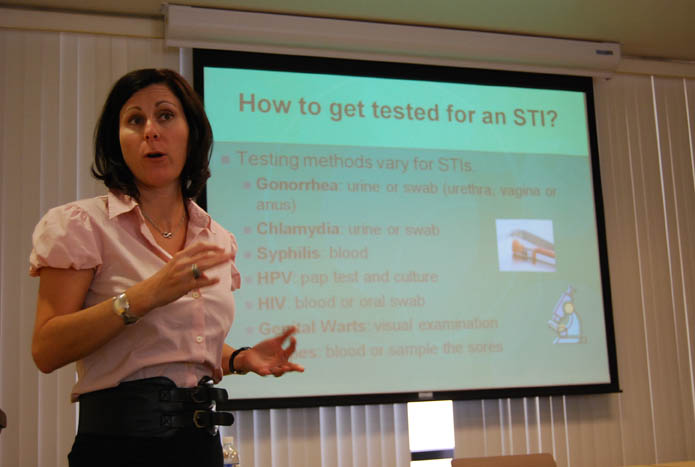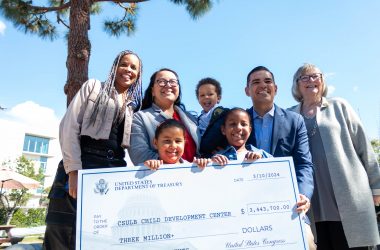Students attended a “Safe and Sexy: Healthy Sexual Relationships” workshop in the University Student Union on Tuesday to learn about better practices for safe sex and discuss current risk factors to Cal State Long Beach students and the Lesbian, Bisexual, Gay and Transgender community.
The workshop is part of a three-day event dedicated to National Coming Out Day on Oct 11. Students, in conjunction with the LGBT resource center and with the aid of CSULB faculty and staff, turned the single-day national event into a week-long celebration.
“HIV is highly prevalent in our community; L.A. County is second in the nation in the number of AIDS cases. New York is the first,” said Heidi Burkey, a health educator at Student Health Services.
According to Burkey, current statistics show that 11 percent of Long Beach is currently infected with HIV or AIDS. At CSULB, Student Health Services diagnoses an average of one case of HIV or AIDS a year, which does not account for students who choose to go to their own medical providers, she added.
HIV and other viral STIs are most commonly passed through exchanged needles and unprotected intercourse, Burkey said. Exchanging needles is not limited to drug using, either, as it is very important when shopping for a tattoo or a piercing to verify the health codes of the business.
“Any good tattoo studio is going to be working very hard at safety and promoting not just its artwork, but its safety and prevention program, too,” Burkey said.
Herpes, chlamydia and HPV account for the most STI cases treated at CSULB. For chlamydia and HPV, most students never show symptoms and do not realize they have the STI until after they are diagnosed.
Matt Cabrera, Student Resource Center coordinator, said it is especially hard for LGBT individuals to come forward about their sexual health because “that’s a type of identity that people have and we don’t always talk about those kinds of identities.”
He said, “We talk about race and ethnic and social economic issues, but not all the time do we get an opportunity to open a dialogue about sexual issues.”
In the workshop, Burkey stressed to students the importance of getting tested and talking with their partner. The most common mistake adults make when attempting to talk to their partners, Burkey said, is asking the question, “Are you clean?”
“Perfectly ‘clean’ people get STIs,” Burkey said. “Stop using the word ‘clean’ with your sexual partners; you’re setting yourself up to potentially hear a lie.”
One in four Americans will get an STI in their lifetime; the vast majority will be in adults younger than 25, Burkey said.
It is important to get tested for STIsregularly because many STIs either take long periods of time to show symptoms or never show symptoms, Burkey said.
Burkey suggested that students ask their partner when they were most recently tested and to invite them to get tested together.
“Many people avoid going to the doctor for treatment because they are afraid, embarrassed or simply don’t know where to get help,” Burkey said. “You can ask to talk to your doctor before the examination; many people are more comfortable when they’re fully clothed and most doctors will make the time to see you.”
Students were also reminded to use condoms and oral barriers whenever engaging in sex, information that many students have heard, but do not necessarily follow.
“I already knew a lot, but this was a good refresher,” said Alonso Cortes, a junior film major. “I’m surprised by all the diseases out there.”
Cabera has been working with the LBGT Resource Center for three years and has attended a similar workshop given by Burkey every year.
“I always learn something new,” he said. “There’s still more to learn whether you had it in high school or not. It’s ongoing information that students need to know.”




